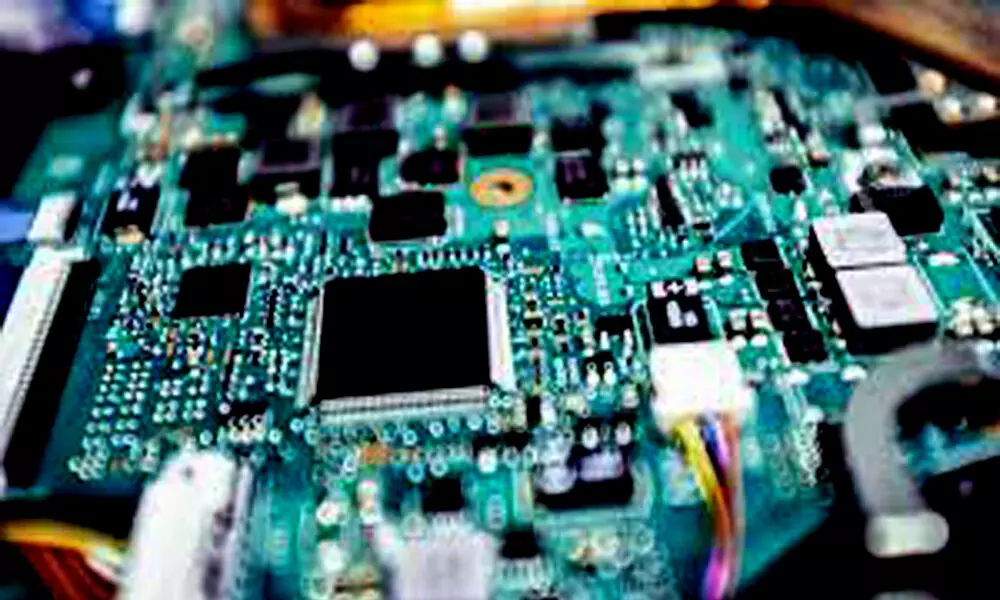India bridging gap in semiconductor space
Even after emerging as a global leader in chip design segment, India lagging in manufacturing of chips
image for illustrative purpose

Indian conglomerates keen on chip making
- Rs76,000cr ($10bn) PLI scheme will attract Rs1.7-lakh cr investments
- Tata Group & Vedanta showed interest in setting up chip mfg units
- India imported $10-bn worth chips in 2019
- China accounted for 70% of chip imports by India
- US, Japan, South Korea and many European nations already ramping up existing capacity or building up new fabrication units
Bengaluru: Indian government's announcement of a Rs76,000-crore incentive scheme for manufacturing semiconductors on Wednesday will go a long way in making the country self-reliant on this critical component, industry experts said.
"Electronics and semiconductors have become the most critical meta-technologies for growth of the economy, all the industry verticals, day-to-day life and agents for social transformation of masses. We are very pleased that the government has come out with a comprehensive and progressive policy addressing semiconductor product design, manufacturing and research with Rs 76,000 crore (around $10 billion) allocation," said Ajai Chowdhry, founder of HCL & Satya Gupta, Advisor-India Electronics & Semiconductor Association, in a joint statement.
The Cabinet Committee on Wednesday cleared a proposal to provide Rs 76,000-cr incentive scheme for semiconductors. Under this scheme, India will set up more than 20 semiconductor design, components manufacturing and display fabrication (fab) units over the next six years.
As part of this new scheme, the government will seek participation of startups to design and make semiconductors. Overall, investments worth Rs1.7 lakh crore are expected to materialise from these initiatives. Since late last year, the world is facing severe shortage of chips due to sudden demand surge for tablets, personal computers and mobile phones amid widespread work-from-home operating model. Due to this shortage, many user industries such as automotive firms, cellular and electronics industry in India are looking at disruption in production schedule.
India is a net importer of semiconductor with minimal manufacturing base in the country. In 2019, the country imported around $10 billion worth chips from other countries, out of which 70 per cent was sourced from China. Through this initiative, India is trying to bridge the critical gap in chip manufacturing.
Many countries including the US, Japan, South Korea, and many European nations are already ramping up their existing capacity or building up new fabrication units. India is the latest to join the race in building up a strong chip manufacturing base in the country.
So far, Israel's Tower Semiconductor, Apple's contract manufacturer Foxconn and a Singapore-based consortium have shown interest in setting up semiconductor units in India. Even domestic business conglomerates like Tata Group and Vedanta have also evinced interest in setting up chip manufacturing facilities.
Though India doesn't have a strong chip manufacturing base, it is one of theleaders in the chip design space with many global firms operating out of thecountry. Firms such as Intel, AMD, Nvidia, Qualcomm, Texas Instruments andmany more medium and small companies have their major research anddevelopment centres operating out of the country. Moreover, Indian engineering services companies have also sound domain expertise in chip design area. Sources in the know said that setting up a manufacturing base will further enhance India's chip designing prowess in the near future.

